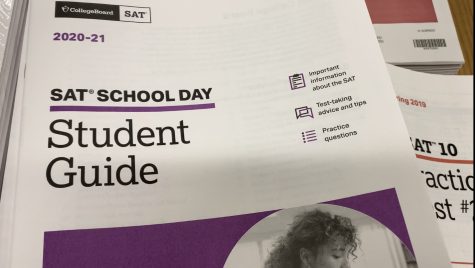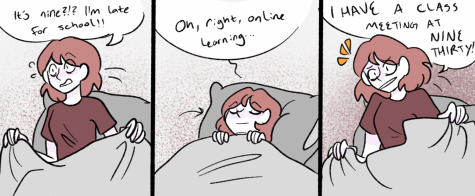Standardized testing: is it really necessary?
April 13, 2021
Students as young as third grade are tested annually in reading and math. These tests continue through eighth grade and switch to PSAT and SAT testing in high school. Standardized testing is required by the state. Here in Colorado, students can be opted out of tests by a parent, and students opting out of standardized tests cannot impact a school’s state funding. However, students’ scores from standardized testing impacts state funding for our public schools, are used to compare class progress, and help teachers identify how their students are doing. These tests have a variety of impacts on our society.
The standardized testing in elementary schools promotes the importance of reading and math from a young age. As much as I believe these are important topics, who is to say that they are more important than subjects like science or the arts? In the third grade students are still finding what they are interested in ,and when schools promote that some classes are more important than others it creates biased ideas for these kids, even if it is not an intended consequence of standardized testing.

According to American University’s School of Education Online Programs, “By placing emphasis on reading, writing, and mathematics, standardized tests have devalued instruction in areas such as the arts, history, and electives.”
I think that for students of such a young age standardized tests are unnecessary, and, if anything, hinder their educational development. I think it is important that teachers promote that all the subjects have value, and there should be focus on all subjects, including the arts and electives, rather than promoting that math, reading, and writing are important as standardized tests currently do.
Everyone focuses on how standardized testing puts a lot of pressure on students and creates unnecessary stress, which I agree with, but I think it is also interesting to consider the impacts that these tests have on teachers. More and more teachers are pushed to teach for the test. They exclude information from the class curriculum when they know it will not be on the test. This can cause an increase in teachers’ stress. Schools put pressure on teachers to improve test scores because test scores have an impact ratings. When so much pressure is placed on teachers, then they start to teach less from a place of care for their students and instead teach from a place that wants high test scores.
To go along with teaching to the test, teachers can feel stressed about test scores even though many testing factors are out of their control. In a blog entitled “Effects of Standardized Testing on Educators” published on Penn State’s education website, the writer explains, “test scores can be affected by a great number of variables. How well students slept the night before, what kind of breakfast they ate, how anxious students are, how hot or cold they feel in the testing room, etc.” It is important to consider these things. Teachers feel that they need to help students improve their scores, but in reality there are many things that influence test scores that the teachers cannot control.
The debate about whether or not standardized testing is necessary in schools is ongoing and has obvious pros and cons. I think that standardized testing in schools should be limited, if not eliminated. The tests affect students from a young age and can impact the way they decide the importance of topics and create unnecessary stress for both students and teachers. I think that steps need to be taken, mainly by elementary schools, that limit the stress and pressure placed on standardized tests. When these steps are taken, students and teachers will reap the benefits.











